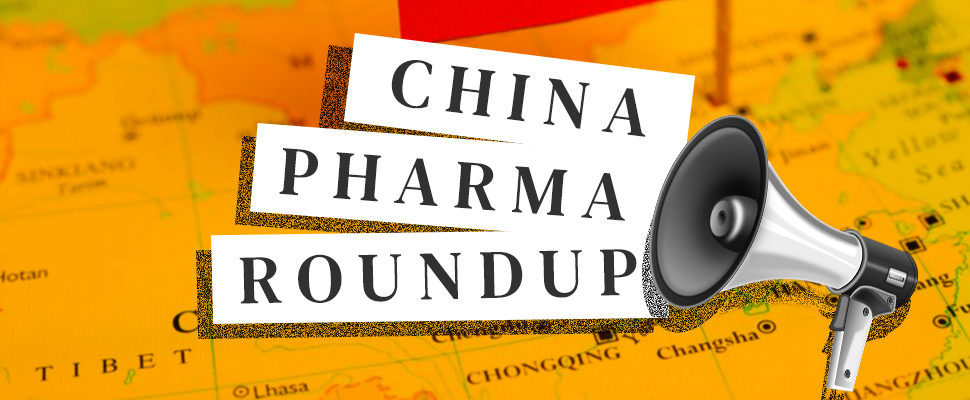The latest news from the Chinese healthcare and life sciences industry, including the first public comments from Astellas CEO Naoki Okamura following an employee’s arrest on espionage charges in China, how the country’s drug pricing policy is impinging biotech profits, and the ways in which COVID-19 exposed the weaknesses in China’s rural healthcare system.
Japanese pharma boss rules out China exit after executive’s arrest (FT)
The chief executive of Astellas has ruled out an exit from China after Beijing detained a local executive of the company last month, a move that sent shockwaves through the Japanese business community in the country.
In his first public comments since its employee was arrested in late March on espionage charges, Naoki Okamura said Japan’s second-largest pharmaceutical company by revenue planned to take further steps to diversify its supply chain in China, but cautioned against the incident becoming a catalyst to pull back its presence.
“It is true that geopolitical risks are rising,” Okamura said in an interview at the company’s Tokyo headquarters. “Instead of deciding to cut off China, we are preparing for such risks by preparing alternative options [to secure products] and increasing safety stocks.”
“For now, we are not considering an exit from China,” he added, noting that the country’s huge market was “obviously attractive”.
China’s Junshi Bio Teams Up With Singapore’s Rxilient to Promote Cancer Drug in SE Asia (Yicai Global)
Junshi Biosciences has joined hands with Singapore’s Rxilient Biotech to promote and commercialize the Chinese biopharmaceutical company’s intravenous cancer drug in Southeast Asian markets.
Junshi Bio will buy a 40 percent stake in Rxilient’s unit Excellmab, which will be granted the exclusive license and other related rights to develop and commercialize cancer drug Toripalimab in nine Southeast Asian countries, including Thailand, Cambodia, Indonesia, and Malaysia, the Shanghai-based firm said late yesterday.
China’s drug-pricing policy impedes biotech profits (FT)
China’s biotech companies are struggling to become profitable as Beijing’s pricing policy undermines attempts to build a homegrown pharmaceutical industry through capital markets.
China allowed medical biotech start-ups, such as BeiGene, Zai Lab, and RemeGen, to list early in a bid to fuel the growth of its industry and help local companies develop innovative drugs.
Since 2018, 40 early-stage companies have floated in Hong Kong under a special listing rule for pre-revenue biotech companies. But nearly five years later, none of them is making a profit, according to a Financial Times analysis of public data.
COVID-19 Exposed Weaknesses in China’s Rural Healthcare (The Diplomat)
The pandemic exposed notable deficiencies in rural healthcare – starting with the village clinic, the first level of healthcare for rural Chinese.
On March 11, the Chinese Center for Disease Control and Prevention’s COVID-19 release reported an over 80 percent decline in national daily fever-clinic visits, suggesting the massive wave of infections since last December has come to an end.
While the report sends quite positive signs of improvement regarding China’s COVID-19 conditions, it also highlights an earlier-than-expected outbreak of COVID-19 in rural regions. Rural daily clinic visits peaked on December 23, just one day after the urban peak. This was one month before the official anticipation, which estimated the rural outbreak would arrive around the Lunar New Year, after millions of migrant workers carried the virus to their villages through their holiday travels.
South Korean biotech companies seek to diversify from China as US tensions rise (FT)
South Korean biotech companies are working to diversify from China in anticipation that the US could tighten export restrictions on the sector to bolster its domestic industry and curb Chinese growth.
The Biden administration has identified biotechnology and biomanufacturing as strategic industries and is expected to introduce more specific measures within months.
The concerns in South Korea over one of its most important sectors for growth also highlight the collateral damage for third countries from rising tension between the US and China over supply chains and technology.
“We’re trying to reduce our reliance on cheaper raw material imports from countries like China and develop more domestic materials to secure supply chain stability as the US-China conflict intensifies,” said a spokesman for the Korea Pharmaceutical and Bio-Pharma Manufacturers Association.
Life science property investors in China expect steady growth as R&D spending spurs demand for lab space (SCMP)
Life science property investors in China expect the sector to grow steadily in 2023 despite a plunge in biotech financing last year that has weakened leasing activity.
Their confidence is underlined by the resilient rental performance of life science real estate and companies’ solid spending on research and development (R&D), which is likely to drive demand for better laboratory facilities in industry parks.
“We believe Asia, and China specifically, has a scalable life science real estate market,” said Hans Kang, CEO of healthcare infrastructure platform at CBC Group. “Overall, we see life science companies in Asia continuing to display robust demand for lab space to support their R&D activity.”


